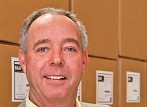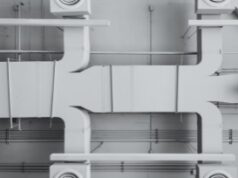 The hotel/hospitality industry is a drought stakeholder. By this I mean the industry is more closely tied to water than it may realize. Hotels/motels consume huge amounts of water but, by taking proper steps, can save huge amounts of water as well.
The hotel/hospitality industry is a drought stakeholder. By this I mean the industry is more closely tied to water than it may realize. Hotels/motels consume huge amounts of water but, by taking proper steps, can save huge amounts of water as well.
According to a study by the North Carolina Division of Pollution Prevention and Environmental Assistance (NCDPPEA):
• Hotels/motels use approximately 14,340 gallons of water daily per connection; in the study, 232 connections were surveyed, and total water usage of all these locations was more than 5 million gallons of water per year.
• Two persons sharing a guestroom with a private bath in a hotel/motel typically use about 60 gallons of water per day.
• Employees working in hotels/motels use about 230 gallons of water per day.
Historically, hotel owners and managers in the United States—like just about everyone else—have given little thought to water (or to water conservation, for that matter) because, except for some temporary shortages, water has always been readily available. In addition, water has always been relatively inexpensive. In fact, many would say it is purposely “underpriced.” In most cases, of all utility bills water is the least expensive in both residential and commercial settings. This does not encourage a more responsible use of water.
However, as many hotel owners/managers now realize, the state of water is changing. Many more areas of the country are experiencing acute water shortages, and very often, instead of lasting a few months, these shortages are lasting a few years. Further, the cost of water is escalating.
A study by the American Water Works Assn. indicates that water bills are likely to double, if not triple, in the next 25 years. Much of this is related to the need to update the water infrastructure, but a considerable amount is related to the simple fact that water utilities are finding it harder and harder to meet the water needs of their communities. This is due to population growth and the fact that in many areas, especially in the western United States, traditional water supplies are simply drying up.
Why Water Conservation Is Not the Answer
Typically what happens when hotel owners/managers, property managers of other types of facilities, and even consumers, hear about droughts and water shortages they think about conserving water. However, the current situation with our water supply calls for a much broader and more permanent approach.
According to the Handbook of Water Use and Conservation, written by Amy Vickers and often referred to as the definitive…reference on water use, conservation, and efficiency measures: “Water conservation has historically been viewed by the mainstream water industry (and users as well) as a standby or temporary [issue] during times of drought or other water shortage. This limited view of conservation’s role is outdated.”
Today, “water conservation” is being replaced by a view toward “water efficiency.” According to the U.S. Environmental Protection Agency, “water efficiency means using improved technologies and practices that deliver equal or better water service using less water.” In other words, using water in fixtures, irrigation systems, and building mechanicals in hotels/motels in a way that consistently uses less water and has little impact on hotel guests or staff.
Delivering Water Efficiency
With a better understanding of what water efficiency is, we can now examine ways to implement water-efficiency measures in your hotel or hospitality facility. The first step typically involves conducting a water audit. A water audit entails the following:
• Gather billing information. Determine how much water has been used at the property for a period of 24 to 36 months.
• Check vacancy rates. Obviously, more water will be used when there are more hotel guests; however, how does the water usage compare to that of a few years ago under similar vacancy rates?
• Conduct a walkthrough of the building with the plumbing plans. The goal is to locate the pipes, fixtures, and other water-delivering or water-removing systems in your facility.
• In landscaping, identify how vegetation is being irrigated and see if a drip-irrigation system could be installed.
• Take a look at restroom fixtures, specifically toilets and urinals. In most facilities, the majority of the water used is either in irrigation systems for landscaping or in restrooms.
The purposes of an audit are many: it establishes a benchmark of approximately how much water the property uses on average over an extended period of time. It can also indicate spikes in water usage. It is important to find out why a water spike has happened. Very often when this is noted there are areas in the property where water is being wasted due to a leak or something similar and very often this waste is significant.
As to the actual steps to take toward water efficiency, the NCDPPEA suggests the following:
• Install low-volume or dual flush toilets that use 1 to 1.6 gallons of water per flush or less.
• Repair all leaks and establish a leak repair schedule to check for leaks in the future.
• Install low-volume showerheads and bath faucets.
• Select ice makers that work by recirculating cool water.
• Install no-water or waterless urinals in public restrooms.
• Install hands-free faucets in public restrooms; these tend to use less water than conventional faucets.
• Eliminate the thawing of frozen food using water (unless such method is required by law).
• Evaluate all kitchen cleaning measures and see where water use can be reduced.
The NCDPPEA lists many more suggestions, but one that can be very significant is to get staff and hotel guests involved in your water-efficiency measures. Placing signs in various locations throughout the hotel indicating that steps are being taken to reduce water consumption and suggesting ways for staff and guests to help often produces surprisingly good results. It is also good PR for the hotel. It tells everyone that your property is doing its part to be greener and more sustainable.
A frequent speaker and author on water conservation and water efficiency issues, Klaus Reichardt is founder and CEO of Waterless Co. Inc., Vista, Calif., makers of no-water urinal systems and other restroom products. He may be reached at Klaus@waterless.com.







